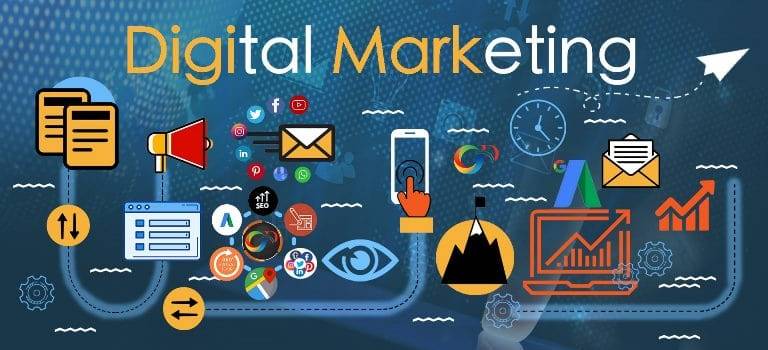Digital Marketing Analytics
-
Using Modern AI Tools and Platforms
Understanding and harnessing the power of data is crucial for success in digital marketing. Digital marketing analytics, a vital component of this process, empowers businesses to decipher valuable insights from their online efforts. the defined process of collecting, analyzing and interpreting data from various digital marketing channels and campaigns. It covers the evaluation of data related to web traffic, user behavior, ad performance, social media engagement, etc.

-
Our Importance on Digital Marketing Analytics
- Data-Driven Decision Making
- Measuring ROI
- Targeted Marketing
- Real-time Monitoring
- Competitive Analysis
- Optimizing Marketing Channels
- Budget Allocation
- Tracking Customer Journey
- Improved Content Strategy
- Enhanced User Experience
- Adaptation to Trends
Digital marketing is dynamic, with trends and technologies constantly evolving. Analytics provide insights into which trends are gaining traction and where to invest resources for future growth. Digital marketing analytics is not just a tool. It is the compass that guides businesses through the vast digital landscape. Businesses can gain a competitive edge in the digital age by understanding its importance and harnessing its capabilities.
-
Types of Digital Marketing Analytics we work with
- Web Analytics
- Social Media Analytics
- Email Marketing Analytics
- Content Analytics
- Search Engine Optimization (SEO) Analytics
- Pay-Per-Click (PPC) Analytics
- Conversion Rate Optimization (CRO) Analytics
- Mobile Analytics
- Customer Analytics
- E-commerce Analytics
-
Strategies we use in Digital Marketing Analytics
- Set clear objectives: Defining specific goals for your digital marketing efforts, such as increasing website traffic, boosting conversion rates, or expanding social media reach.
- Choose the right tools: Selecting appropriate digital marketing analytics tools and platforms based on your business needs and budget. Popular options include Google Analytics, social media insights, and email marketing analytics tools.
- Collect relevant Data: Ensuring the data colletion that aligns with your objectives. Set up tracking mechanisms, such as UTM parameters or event tracking, to capture relevant information accurately.
- Analyze data regularly: We Consistently review your analytics data to identify trends and insights. Regular analysis helps you make timely adjustments to your marketing strategies.
- Segment your audience: We Use demographic, geographic, and behavioral data to segment your audience. Tailor your marketing efforts to different audience segments for maximum relevance.
- Monitor funnel metrics: Track user journeys and conversion funnels to identify drop-off points. Optimize landing pages and content to reduce friction and improve the user experience.
- Benchmark performance: Comparing your digital marketing performance against industry benchmarks and competitors.
- Data privacy and compliance: We Respect data privacy regulations like GDPR and CCPA. Ensure that your data collection and storage practices are compliant to avoid legal issues.